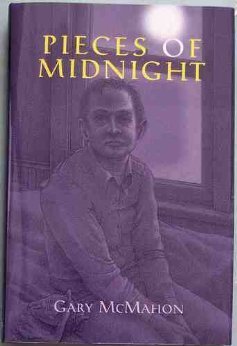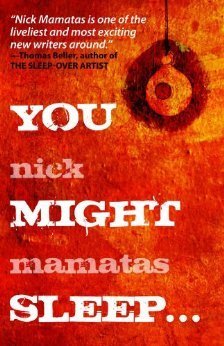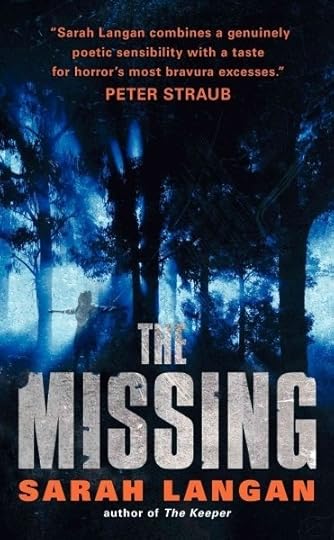Laird Barron's Blog, page 49
September 14, 2013
Domination of Black
When I write, and especially when I write of the ineffable and the inevitable, I often glance over my shoulder at this. Then hurry on, racing as we all do, from darkness into darkness.
Domination of Black
by Wallace Stevens
At night, by the fire,
The colors of the bushes
And of the fallen leaves,
Repeating themselves,
Turned in the room,
Like the leaves themselves
Turning in the wind.
Yes: but the color of the heavy hemlocks
Came striding.
And I remembered the cry of the peacocks.

Credit ESO
The colors of their tails
Were like the leaves themselves
Turning in the wind,
In the twilight wind.
They swept over the room,
Just as they flew from the boughs of the hemlocks
Down to the ground.
I heard them cry — the peacocks.
Was it a cry against the twilight
Or against the leaves themselves
Turning in the wind,
Turning as the flames
Turned in the fire,
Turning as the tails of the peacocks
Turned in the loud fire,
Loud as the hemlocks
Full of the cry of the peacocks?
Or was it a cry against the hemlocks?
Out of the window,
I saw how the planets gathered
Like the leaves themselves
Turning in the wind.
I saw how the night came,
Came striding like the color of the heavy hemlocks
I felt afraid.
And I remembered the cry of the peacocks.


September 13, 2013
Read This: Mamatas & McMahon
A couple of reviews unearthed from ye old site:
Pieces of Midnight by Gary McMahon
There are several Canadian and U.K. authors I’m excited about right now. From the Great White North: Barbara Roden, Gemma Files, Ian Rogers, Simon Strantzas and Richard Gavin; and from the U.K.: Steve Duffy, Simon Bestwick, Simon Kurt Unsworth, Allyson Bird, and Gary McMahon. I happen to have a manuscript copy of Gary’s Pieces of Midnight and it’s terrific, old school (at heart) horror and weird fiction.

I’ve followed Gary’s fiction for a couple of years now and have to say this prolific author is growing stronger with every story. From what I gather, PoM is front-loaded with some of his older fiction, and I have to admit a couple of the pieces seemed weaker toward the end, but are great reading nonetheless. This stuff is nicely atmospheric and the influence of M.R. James is not only evident, but occasionally presented with a knowing wink. While some of the characters present to me as types, Gary possesses a knack for the wry insight or unexpected tic that engenders them with vitality.
His strength is the interpretation and contemporary rendering of classic ghost story tropes, a strength he shares with Barbara Roden in particular, and I think his fascination with relationships between human beings serves him well, appearing as it does as a reinforcing theme. He’s not a flashy prose stylist, but not precisely workmanlike, either. I’d classify the prose as mid-to above average as it pertains to literary dazzle and special effects, but the language works as the atmosphere, the ubiquitous aura of lurking danger, is expertly manifested and requires scant adornment. I’m not always convinced by his endings, but that’s admittedly subjective, and the ones that do work for me are dynamite.
His novelette “The Sand King” is a first class homage to James and is a standout in the collection. He takes the cliched married couple who’ve gone to a seaside retreat to repair their damaged relationship and deforms the trope in a way that is ghastly and fearful, yet brilliant in its melancholic effect. Pieces of Midnight is a must-buy for the horror/weird tale maven and there is no doubt that Gary is going to be extraordinarily successful.
You Might Sleep… by Nick Mamatas
I’ve spent several weeks working through You Might Sleep…but you will never dream, a new collection by Nick Mamatas. It’s a fine looking book, but the beauty is skin deep. What lies between the covers is unadorned and mean. It could be personified as a large, feral dog with a choke collar chained to a fence, and growling in its dreams of biting the hell out of the mailman. Mamatas writes as if he’d as soon take your hand off as look at you.
And so, yes, I’ve taken my time between stories, which are uniformly lean, but uniformly brutal and provocative. McCarthy’s Blood Meridian, Nic Pizzolatto’s From Here to the Yellow Sea, and Paul Tremblay’s as yet uncollected recent tales affect me in a similar fashion, although the authors’ styles and subjects bear scant resemblance to one another. Nonetheless, these gentlemen all write in the eat-or-be-eaten mode. I’ll leave the comparisons there — Mamatas occasionally edges into the territory of classical authors, but his style isn’t readily pinned down except to say its pervasive wryness, its acidic commentary, sets him apart from just about everybody in the field.
You Might Sleep…collects twenty-two pieces of fiction that run the gamut of science fiction, fantasy, metafiction, horror, generic lit, to the realms of the effectively unclassifiable. Mamatas plays with form and structure, although he favors a stark, blunt prose style. Intellectually, as evidenced by his LJ essays, he’s one of the sharper knives in the drawer, and that keenness is on display in this collection. And a merciless display it is. He’s got a developed sense of humor, but the trick is to figure out when he’s laughing with you or at you.
Do I recommend You Might Sleep…? Without hesitation. This is upper echelon writing from sentence level outward. However, it’s not for the weak-kneed or the casual reader. Mamatas is going to challenge you, implicate you in his brutal and perverse scenario-making. He’s going to hit you where it hurts. And laugh. 


September 12, 2013
Watch This: True Detective
“This is a world where nothing is solved. There are broader ideas at work.”
True Detective is liable to be brilliant because it is written by Nic Pizzolatto, author of Galveston and one of my favorite collections, Between Here and the Yellow Sea. Winter is coming and it’s going to be spooky.


September 11, 2013
Doppelgänger
An entry on my LJ from five plus years ago. The doppelgänger became part of my inspiration for a story Called “D T.”
I have a doppelgänger. That much has become clear over the past eighteen years. Obviously, there are cases of mistaken identity, innocent and expected confusion. I’ve written off most incidents as such. However, several of these sightings when taken in the context of a larger pattern continue to mystify me.
1. I worked at a fish processing plant in Anchorage, AK during my late teens and early 20s. The plant was bordered by a railroad track. Walking on the track or fooling around with cargo flats, etc. was instant termination from the company. On two occasions people accused me of clambering around the parked locomotive. The accusers were relative strangers (300 people worked at the factory) and had no motive to harm me. In fact, when confronted by HR and myself, they swore to their testimony. One fellow even apologized for getting me in trouble — he just felt it was his duty. I’m a pretty distinctive looking person, extremely easy to ID in broad daylight, I’m sure. Of course, I never went anywhere near those tracks.
I wrote off the incident.
2. A couple of years later I was walking back from lunch and this huge man accosted me. Now the fish factory was located in an industrial area adjacent to the airport. This man was delivering a semiload of whatever to a warehouse. The trucker was in his late 50s and simply massive. He wore a leather biker vest with no shirt. Lots of muscles, lots of tatoos. Extremely grizzled and forbidding — the man could’ve played a heavy in an action flick. He was chatting with a receiving clerk when he saw me walking by. The trucker frantically called to get my attention. I’d never seen him before, but he was so insistent I met him halfway. This man, who I’d heard speaking perfect English, started babbling at me in a combination of English and I don’t know what as he crushed my hand in both of his. There were tears in his eyes and he repeated, “Oh my God, it’s you!” and “How did you get here?” and when he realized I didn’t understand, “1955! 1955!” You were there!” As if he were trying to convince me that I was who he thought I was. Eventually, he stared at me, wiped his eyes and said solemnly, “Remember, you were there. It was you.” Then he patted me on the arm, his expression melancholy. He resumed a perfectly gruff truckdriver type conversation with the poor clerk who’d been standing there with his mouth open.
I wrote off the incident, although it bothered me for years.

Painting by D.G. Rossetti
3. I used to take a martial arts class in Seattle. I walked or rode the bus everywhere. I also carried a metal grip strengthener everywhere I went. This thing looked kind of like a foot long harp with four massive springs. Some joker at my former fish plant job painted it neon pink. So one evening I’m at the dojo and one of my classmates, a mechanical engineer, asked what the hell I’d been doing wandering the streets at 5am that morning. I’d been dead asleep and told him so. Other guys wear patches in the big city — he must’ve caught a glimpse and mistook someone else for me. My friend was adamant. “Nobody else I know wears a patch and lugs a giant pink hand gripper.” He’d pulled over and called to the figure. i guess my double grinned, waved and then disappeared down an alley. And frankly, my friend never did quite believe I was on the level about the whole deal. A year or so later, one of the police officers who attended class swore he saw me across town at night. Same thing, except i carried a blackthorn cane, having ditched the gripper. This one i had an alibi for — I’d been at dinner with friends that evening.
Now I’d finally decided something rather peculiar was occurring.
4. The last one I’ll mention (and there are several more) occurred a year or so later. I’d been working for a tree service. My job was to run the ground lines, cut rounds, feed the chipper, all kinds of backbreaking fun. I never climbed, however. I went into my favorite coffee shop on a day off, late afternoon. The barista, who I’d been buying coffee from for ages, expressed surprise at my arrival. She’d just seen me several miles away (on her way to work) about halfway up a humungous tree cutting branches and lowering them on a line. I told her it was my day off. Erin, my future wife, explained we’d been at her apartment all day. The barista shook her head. “No, it was you,” she said. She’d been stopped in traffic, or at a stop sign, I don’t recall, but I’d leaned way out and made a point to smile and wave at her. There was no question in her mind.
The other thing is, in retrospect, the three Seattle folks later admitted that whoever they’d seen had seemed unmistakable, but had acted in an odd, sly manner. I don’t know what it means. Creepy, though.
Anybody else out there have a doppelgänger?


September 10, 2013
Interviewed by David Marshall
September 9, 2013
Read This: The Missing
Here’s a review I wrote a few years ago for Sarah Langan’s The Missing.
I recently finished The Missing, Sarah Langan’s sophomore novel. It reads as an homage to classic 80s horror, albeit possessed of a thoroughly modern sensibility — echoes of Salem’s Lot, itself an homage to Stoker’s Dracula. Considering the organic nature of Langan’s supernatural intrusion, her effort represents a delightful — and ongoing – literary mutation of the original source. Comparisons to Stephen King are duly earned, although I think Langan’s portraits of human frailty are even darker and more queasily affecting than King’s early work. Langan’s writing and characterization are sharp. She juggles multiple viewpoints with seamless precision; one is swiftly immersed in the overlapping storylines of each new character. The vignettes featuring extras about to suffer a horrible fate are also remarkably accomplished. It requires significant skill to emotionally involve the reader with bit characters in a matter of a few hundred words, and this, I believe, is one of her strengths.
I recently participated in a library project to recommend books, films, etc. Here’s the capsule review I wrote for The Missing:
“This is a supernatural thriller by relatively new author Sarah Langan. A boy sneaks away from a class field trip and stumbles across a bizarre clearing in the woods — a clearing where the earth has gone black with blood and animal bones are piled in sacrificial biers. The boy’s intrusion stirs a great evil that soon begins to consume the Maine town of Corpus Christi, transforming its unwitting citizenry into something atavistic, and, ultimately, quite inhuman. Langan wrenches the longstanding tropes of sleepy towns and festering curses into the 21st century. Her depiction of small town life and the dark side of human nature would be no less compelling were it utterly stripped of its supernatural elements.”



The Missing
Here’s a review I wrote a few years ago for Sarah Langan’s The Missing.
I recently finished The Missing, Sarah Langan’s sophomore novel. It reads as an homage to classic 80s horror, albeit possessed of a thoroughly modern sensibility — echoes of Salem’s Lot, itself an homage to Stoker’s Dracula. Considering the organic nature of Langan’s supernatural intrusion, her effort represents a delightful — and ongoing – literary mutation of the original source. Comparisons to Stephen King are duly earned, although I think Langan’s portraits of human frailty are even darker and more queasily affecting than King’s early work. Langan’s writing and characterization are sharp. She juggles multiple viewpoints with seamless precision; one is swiftly immersed in the overlapping storylines of each new character. The vignettes featuring extras about to suffer a horrible fate are also remarkably accomplished. It requires significant skill to emotionally involve the reader with bit characters in a matter of a few hundred words, and this, I believe, is one of her strengths.
I recently participated in a library project to recommend books, films, etc. Here’s the capsule review I wrote for The Missing:
“This is a supernatural thriller by relatively new author Sarah Langan. A boy sneaks away from a class field trip and stumbles across a bizarre clearing in the woods — a clearing where the earth has gone black with blood and animal bones are piled in sacrificial biers. The boy’s intrusion stirs a great evil that soon begins to consume the Maine town of Corpus Christi, transforming its unwitting citizenry into something atavistic, and, ultimately, quite inhuman. Langan wrenches the longstanding tropes of sleepy towns and festering curses into the 21st century. Her depiction of small town life and the dark side of human nature would be no less compelling were it utterly stripped of its supernatural elements.”



September 8, 2013
Listen to This: Clutch
My good friend Paul Tremblay turned me on to Clutch a couple of years ago. For that, I’ll put in a good word for him with the eldritch darkness when it comes sloughing.
I give you “The Regulator”


September 7, 2013
Watch This: Hara Kiri
I’m a devotee of Takashi Miike’s horror and samurai films. After recently watching The Thirteen Assassins and the quiet epic that is Hara Kiri, I’m convinced he’s got a bit of Kurosawa’s magic flowing through him to complement the De Palma and Hitchcock.
My pal John Langan described Hara Kiri as a Russian novel in regard to its tragic elements. Admirably restrained, beautifully shot, this is one that will be with me for a long time.









